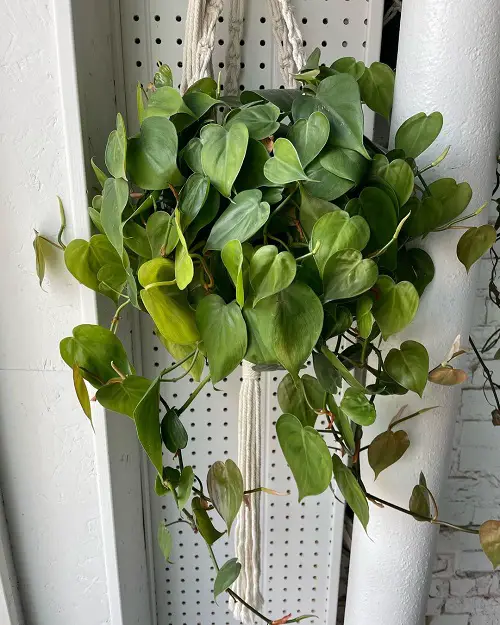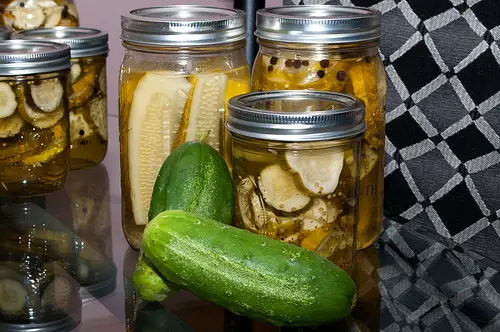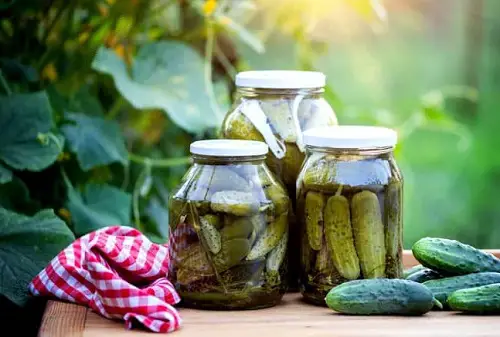Discover the best Pickle Juice Uses for Plants and whether or not it is good for them with our expert guide!

While pickle juice may seem like an odd choice for plant care, it turns out that it may have some surprising benefits. Join us as we discover Pickle Juice Uses for Plants!
Have a look at the banana peel uses in the garden
What is Pickle Juice?
Pickle juice is the liquid that is left over after pickles are made. It is usually made of vinegar, water, and salt. It can be used as a fertilizer for plants as it contains the nutrients that plants need to grow healthy and strong.
Pickle juice can be used to water plants and can be added to the soil as a nutrient supplement. It can also be used to help control pests and diseases, as it is high in acidity and can stop the spread of fungus and other pathogens.
Here are Surprising Potato Peel and Slices Uses in the Garden
Pickle Juice Uses for Plants
1. Pickle Juice for Soil pH Balance
Pickle juice is mostly composed of vinegar, which can help to lower the pH of the soil and make it more acidic, which can be great for plants like Hydrangea, Gardenia, Camellia, Azalea, Begonia, Impatiens, Rhododendron, Blueberry, Potentilla, Heather, Vinca, Clematis, Fuchsia, and Astilbe.
Simply dilute pickle juice with water in a ratio of 1:10 and use it in the growing medium.
2. Weed Killer
The vinegar and salt in the juice are very effective at killing weeds without the use of harmful chemicals. Dilute it in a ratio of 1:1 and spray it directly onto the weeds. Make sure that you are not spraying the solution on plants.
3. Pickle Juice for Fungal Growth Prevention
The vinegar in the juice is naturally antifungal and can help protect your plants from harmful fungi. Diluting the juice with water in a ratio of 1:10 before use and spraying it into the affected area to keep excessive fungal growth at bay.
4. Composting with Pickle Juice
Pickle juice can be added to your compost bin to help break down organic matter too. The vinegar in the juice can help accelerate the decomposition process and provide essential nutrients to the compost.
Dilute the juice with water in a ratio of 1:6 before adding it to the compost to help prevent the pH of the compost from becoming too acidic.
5. Pickle Juice Fertilizer
Pickle juice can be used as a fertilizer for some plants, such as tomatoes, cucumbers, peppers, and squash. The acidity of the juice helps to balance the pH levels in the soil and can also help to reduce the occurrence of diseases in the plants.
To use, simply pour the pickle juice directly onto the soil around the base of the plants after diluting it with water in a ratio of 1:4. Be careful not to overdo it, as too much acidity can be harmful to the plant.
6. Soil Amendment
You can use it as a soil amendment, as it contains high levels of salt and vinegar, which can be beneficial for some plants like succulents, cacti, and some grasses but can also damage others.
Dilute it with water in a ratio of 1:6 before adding it to the soil. It is important to test the soil pH before adding pickle juice, as it can raise the soil pH, making it more alkaline.
You can also use it as a fertilizer, as it contains some essential nutrients such as calcium, magnesium, and phosphorus. Do note to dilute it with water in a ratio of 1:6.
7. Cleaning Garden Garden Tools
Pickle juice can help loosen rust from garden tools, as well as remove dirt and other debris. To use pickle juice for cleaning garden tools, simply pour the juice over the tool and let it sit for several minutes before scrubbing it with a brush or cloth.
Rinse the tool with water afterward to ensure all pickle juice is removed.




